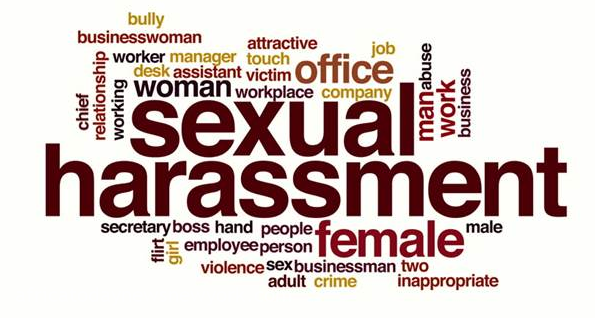Sexual harassment, as declared by the Independent Corrupt Practices and Other Related Offences Commission (ICPC), is classified as a corrupt practice with a prescribed minimum imprisonment term of seven years.
The Secretary to the Commission, Mr Clifford Oparaodu, gave the warning in Abuja at a ‘One Day Sensitization Workshop on Sexual Harassment in Tertiary Institutions.’
Oparaodu pointed out that the ICPC recognizes sexual harassment as a corrupt practice, stressing the importance for victims to be informed about their rights and the procedures available for seeking justice.
He voiced concern over the alarming trend where sexual gratification has transformed into a kind of “illegal tender” within numerous institutions.
‘Sexual harassment is a form of corruption.’
It was noted that for an official to use their office or position to demand, receive, obtain, or attempt to obtain any form of sexual gratification for the execution of duties is seen as a deviation from the norm.
‘Ideally, official duties ought to be carried out with integrity, good conscience, and diligence without the expectation of any unlawful benefit,’ he said.
According to him, Section 2(f) of the ICPC Act states that gratification includes any service or favour of any description …” Section 8 of the ICPC Act says:
‘Any person who corruptly asks for, receives, or obtains any property or benefit of any kind for himself or any other person; is guilty of an offence of official corruption and is liable to imprisonment for seven years.’
‘It is pertinent to note that unlawful benefits are not always pecuniary, and it is disheartening that sexual gratification has become a form of “illegal tender” in many institutions.’
‘Staff members have been found to use their office to demand and receive sexual benefits from other staff and students in exchange for good grades or other favours,’ he said.
Oparaodu lamented that it is unfortunate that, driven by the fear of stigmatization or heightened victimization, many individuals targeted by such demands find themselves compelled to give in.
Read also: Tinubu Okays Appointment Of Aliyu As ICPC Chairman
‘This is in order to avoid dire consequences and denial of benefits to which they may ordinarily even be entitled.’
‘The culture of silence has allowed sexual harassment to thrive, but the ICPC is working relentlessly to ensure that, with sensitization and appropriate policy implementation, this culture will gradually change,’ he said.
The intention, as explained by Oparaodu, is to confront the issues of sexual gratification and the abuse of office and power by officials.
The primary goal of the workshop, according to him, was to provide students with insights on how to readily reach out to the ICPC, report cases of sexual harassment, and gather evidence to assist the commission’s investigations.
In a paper he presented on “Sexual harassment, an offence against the individual/a crime against society, the
Mr Adenekan Shogunle, Deputy Director, Proceed of Crime Department, ICPC, in a paper presented, urged participants to regard the fight as a collective one.
Shogunle said that youths should not accept sexual harassment, saying that the menace needed to be stopped to ensure the safety of educational institutions for learning.
‘What is essentially a social disorder has become normal in many tertiary institutions.’
‘Absence of effective grievance remedial mechanisms and a prevalent culture of silence, social tolerance has left many female students at the mercy of rabid predators.’
‘In a bid for justice, survivors are taking matters into their own hands, naming perpetrators and sharing experiences on social media,’ he said.
Mrs Peace Aroch, Assistant Director, Legal Unit, ICPC, said in a paper that sexual harassment had psychological implications, which had to do with the mental or emotional state of the survivor.
Aroch said people sexually harassed commonly experienced stress, anxiety, depression, and Post-Traumatic Stress Disorder (PTSD).
She said that sexual harassment was still being underreported in spite of its social media posts.
The director said that sexual harassment was still being underreported because of issues of trust, security, fear, and poor financial standing of survivors.
Aroch called on the private and public sectors to establish their workplace sexual harassment policies.
She suggested that they could refer to the ICPC’s sexual harassment policy as a guide to formulate their own.
In a written document, Sarah Egbo, the Policy Lead Gender at Mobile Initiative, urged leaders of institutions to exhibit a firm commitment in addressing the issue of sexual harassment.
Egbo further advocated for the active engagement of the entire institution in both policy development and implementation, emphasizing the importance of transparency in reporting, investigation, and decision-making.

